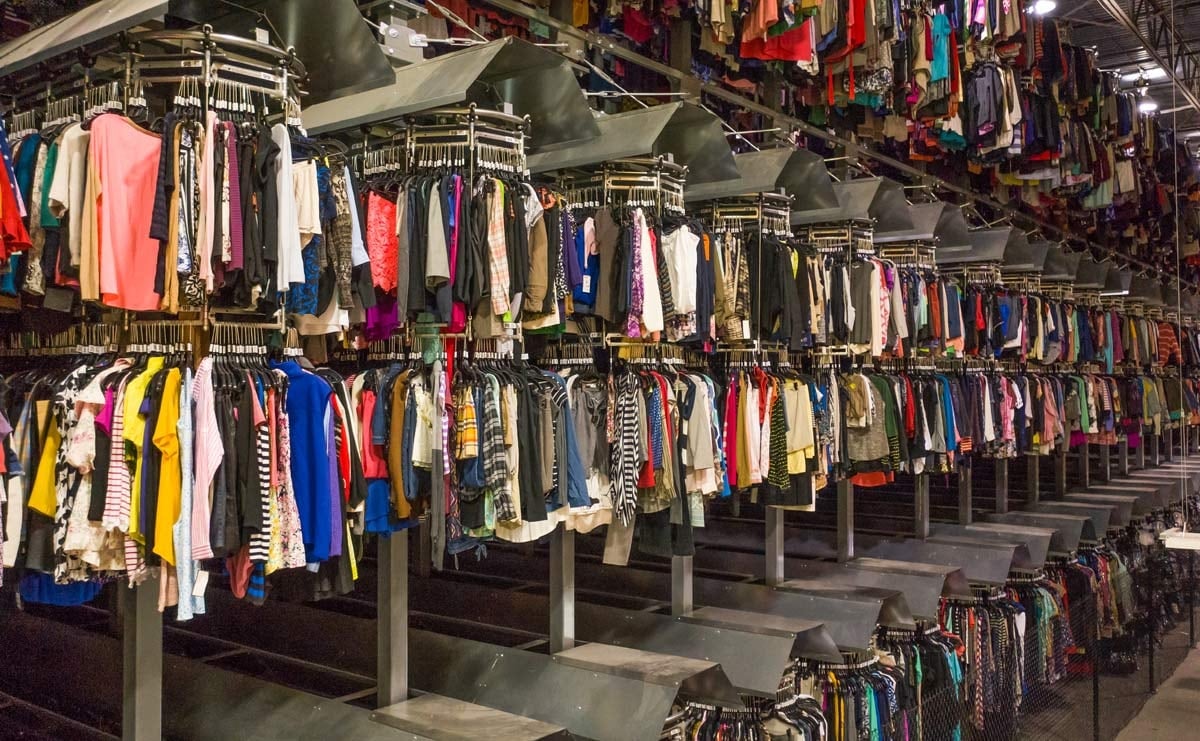
(Image: https://fashionunited.uk/news/business/can-the-fast-fashion-business-model-embrace-sustainability/2019082944992)
Sustainability is a buzzword in today’s day in age, but what does it encompass? According to the University of Alberta’s Office of Sustainability, it is the practice of meeting our own needs without inhibiting the abilities of future generations to do so. But it doesn’t just pertain to the environment and natural resources: social equity and economic development are equally important.
An undeniable player in the game of global sustainability is the textile industry. Since the industrial revolution, the textile industry has been a repeat offender of human rights violations and workplace danger, as stated in this New York Times book review. The exploitation of children, immigrants, and the use of slave labor are part of its dark history to drive profits for clothing manufacturers who employ these methods to cut costs.
Simply, the current implementation of clothing manufacturing globally is unsustainable in both the realms of social equity and natural resource preservation. But it is naïve to think this is only happening overseas, in faraway countries outside our immediate viewpoints. One Vox article talks about Forever 21’s exploitation of underground sweatshops in Los Angeles. Similar brands such as H&M and Zara adhere to similar practices.
Besides manufacturing processes that depend on cheap labor in Asia, they all espouse the unsustainable model of “fast fashion”. That is, they are all about the quick turnover of cheap, trendy clothing items that will be worn for one season then disposed of the next. A study cited by the same Vox article says an article of clothing is worn an average of seven times before being thrown out – that figure decreases to three when only looking at China. We understand on a cognitive level that this is unsustainable, yet we still do it. What is driving this culture of wastefulness and high turnover?
Certainly, the prominence of social media has exacerbated the issue because consumers more than ever seek status now that our lives both exist in the physical and virtual world. However, social media is much less of a cause of rampant consumerism than it is a supplement to the ideology of materialism and economic freedom America and other capitalist nations were founded upon.
By having agency over our own capital, which we have worked hard to procure, we are able to participate in this “flex culture” that associates personal worth and wellbeing with status and material goods. It is easy to conclude that because someone possesses trendy or designer clothing, they must be uniquely hardworking or creative or talented. Unfortunately, this is a glaring example of the self-attribution fallacy, which is when someone falsely credits themselves for outcomes they weren’t responsible for.
Apart from this cynical view that nearly vilifies the average consumer, there are several movements that are raging against this synthetic fiber and labor exploiting machine.
For one, thrifting has risen in popularity as an alternative to buying fast fashion and/or buying ethical brands at full price. A trend in of itself, it is doing away with its previous association with “poverty” and “uncleanliness”. However, concerns about thrifting’s mainstream popularity on the poor must be acknowledged. It is boiled down to the fact that the poor rely on thrifting while others have the choice to do so.
Moreover, there is the issue of people “flipping” their clothing by reselling their thrifted goods online with a heavy markup. While the natural resources expended has not increased from this transaction (though we should still note that sellers must ship their goods to buyers), this practice opposes social equity and sustainability to an extent when quality goods are being systemically removed from impoverished areas. Nevertheless, awareness of the possible effects of doing so is a first step in finding alternative solutions to the overarching issue of sustainability.
Sustainability in the textile/fashion industry is a deeply complex issue that would take a complete overhaul of consumer and company attitudes to “fix”. The ideologies of competition and profit motives fostered an environment where wasteful practices flourish, but I believe it has the power to render it obsolete too. Clothing brands’ practices reflect customer desires because we comprise their revenue. Many companies already employ sustainable processes – so it’s doable. Once clothing brands realize the changing attitudes of today’s sustainability-conscious consumers, ethical practices will follow suit.
Leave a Reply